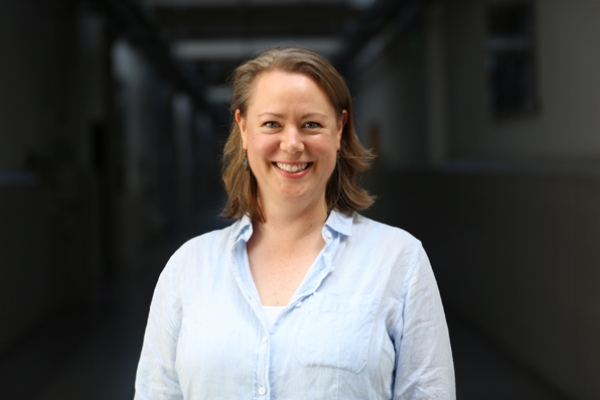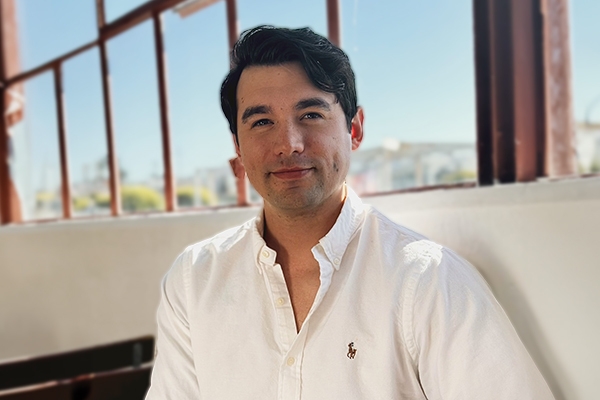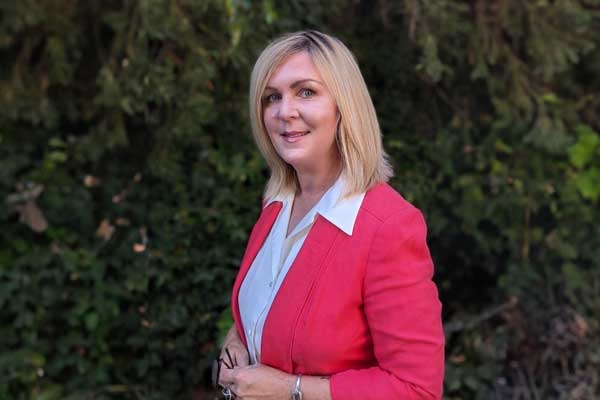Mark Love’s career toward labor relations and human resources began to form at about 30,000 feet above sea level. His appreciation for international relations and politics is rooted in his experience growing up with parents who both worked in the airline industry.
“I was fortunate to be able to travel internationally as a benefit of my parents’ jobs,” Mark recalls. “But it was the tense labor relations between the airline and its workers that was most impactful to my career aspirations.”
He remembers when he was young, he witnessed his mom join many of her flight attendant co-workers in what is still one of the largest transportation strikes in history. Mark recalls the dispute was so tense; President Clinton intervened on the eve of Thanksgiving to end the strike and send the matter to interest-binding arbitration. As a result, the strike ended and the labor dispute was resolved.
These influences led him on a path to earn a Bachelors of Arts in international affairs and political science at The George Washington University. Mark supplemented his academic education with practical internships.
“I learned the inner workings of Capitol Hill as an intern for Senator from California Barbara Boxer's office,” he says. “I then interned for the Association of Flight Attendants-CWA (AFA), where I helped prepare a lobbying campaign to amend the federal Family and Medical Leave Act to cover flight attendants. Given my love of politics, history, and international relations and travel, there was a time when I seriously worked toward becoming a diplomat.”
Mark has since completed our Certificate Program in Human Resource Management and is preparing to sit for the Society for Human Resource Management (SHRM) exam later this year.
So how does one get from diplomat to human resource management as a career path? Let’s learn more about Mark’s career journey.
After you graduated from The George Washington University with your political science and international affairs degree, you began working at various law firms, including in the San Francisco Bay Area.
During this time, I was considering law school and was also searching for my career as my aspirations to join the State Department or another federal agency were challenged by hiring freezes. Ultimately, I decided not to go to law school; however, I did fall in love with the Bay Area.
In 2012 you were a field organizer as part of Organizing for America (OFA), which later became Organizing for Action, out of the Cincinnati area. Can you tell me about that experience and how it shaped your career journey?
I had the opportunity to join Organizing for America, which was the 2012 U.S. presidential campaign organization for President Barack Obama and Vice President Joe Biden. I took the position with the OFA because it was an exciting opportunity to have an impact on a presidential campaign in a critical swing state. During the campaign, I enjoyed organizing community members to achieve a common goal. When the campaign ended, I considered how I could incorporate similar aspects of leadership and community building into my career. My decision led me to become a labor relations representative (LRR).
I really enjoyed advocating for classified employees in Ventura County. As an LRR, I honed my organizational skills that I had learned with OFA, and I gained experience as a chief negotiator at seven collective bargaining tables.
Eventually, you returned to the Bay Area and began your career in employee relations. Around that same time you began our Certificate Program in Human Resource Management. Why was it important for you to further your education at this time?
I was working in employee relations in the Department of Human Resources for the City and County of San Francisco. I loved my job and the field of employee and labor relations, but I wanted to enhance my knowledge of other human resources (HR) fields so that I could grow my career in a competitive environment. I took advantage of a reimbursement program that the City and County of San Francisco had with UC Berkeley Extension and registered for the human resource management certificate because of the highly relevant curriculum.
Which courses made the biggest impact on your education and career goals?
I enjoyed all of the courses that I took but the one that stands out to me was Employee Benefits Plans with Richard Takahashi. He was clearly knowledgeable and passionate about the subject. I learned a ton during the course, and it has helped me in my career as an employee relations professional has to bargain benefits plans with unions. I intend to enhance my knowledge of the fascinating world of benefits during my career.
I chose that course because it is an area of HR that I needed to enhance my knowledge. I initially was hesitant when I chose Employment Law as my second elective as I have significant experience with employee relations. However, I found that the course provided deep insight into current legal trends in employment law. I also enjoyed engaging with my classmates, many of whom worked in the private sector.
Toward the end of the HR certificate program you accepted a position with the City of Vallejo as the assistant director of human resources, and eventually as the director of human resources. How did what you learned in the certificate prepare you as you transitioned into these leadership roles?
The certificate program covered many broad topics such as benefits and recruitment, which enabled me to more effectively address the various issues that face the City and its Human Resources Department. The program provided a strong foundation of relevant human resources curriculum that helped with my transition from an employee relations role to director.
In 2022, you accepted your current position of labor relations manager with the City of Oakland. How are you able to apply the certificate program teachings to this new role in order to accomplish your objectives at work?
Much of what I learned from my courses is still applicable to my current work as an employee relations manager for the City of Oakland. I use what I learned in the employment law and employee relations courses as a foundation. I particularly use what I learned in Effective Performance Management to advise executives and leaders on how to engage employees in the often complex performance evaluation process. What I learned about in the Employee Benefits Plans course has also come in handy during the bargaining process.
How do you see your UC Berkeley Extension education helping you in future career changes or advancement?
The certificate provides a valuable base of knowledge that I can continue to build upon as I continue to deepen my understanding of HR to support organizations realize their goals.
What advice would you give to someone who is interested in pursuing a career change to HR?
Be prepared to enter a dynamic industry that is ever-evolving and requires relationship-building skills. Given this, I recommend getting as much practical experience from organizations with strong HR departments and continuing your education with experts in the HR field, like those at UC Berkeley Extension.



